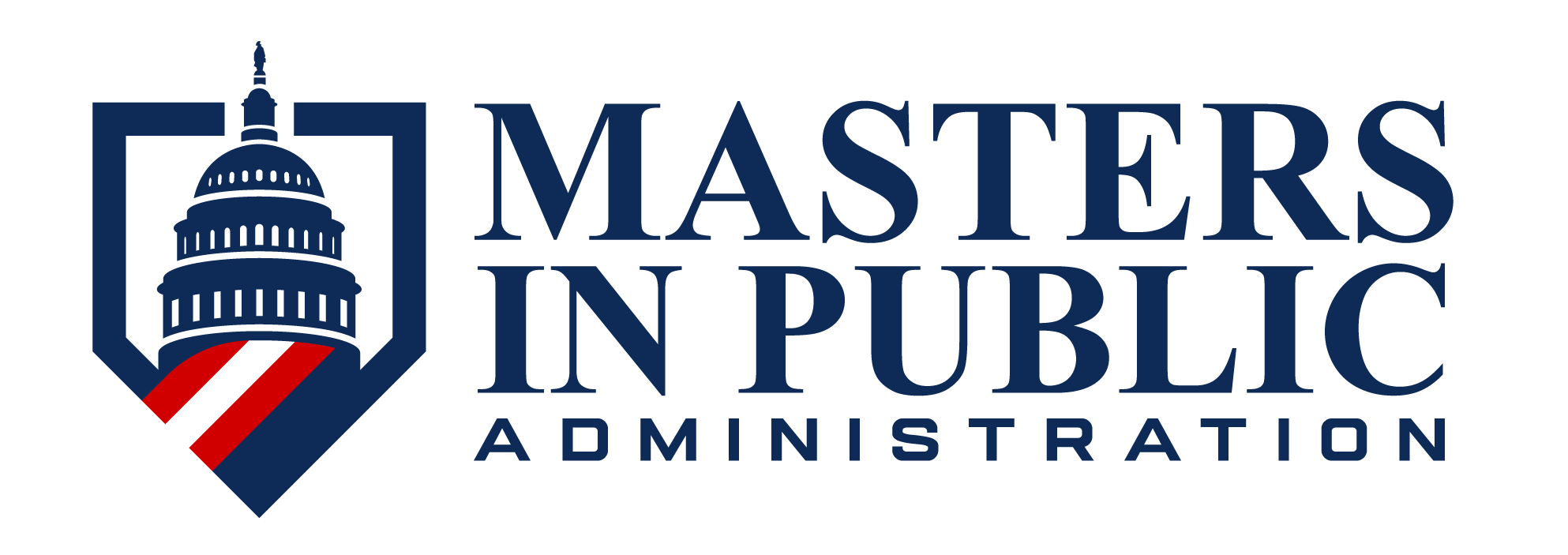Introduction
Pursuing a Master’s in Public Policy (MPP) in Washington State offers a unique opportunity to engage with diverse policy issues, ranging from environmental sustainability and urban development to technology policy and social equity. Courses typically cover policy analysis, economics, data science, and program evaluation, equipping students with skills to address complex public challenges.
While both degrees focus on public service, the MPP emphasizes policy analysis and development, preparing graduates to craft solutions to societal problems. An MPA (Master of Public Administration), by contrast, focuses more on public sector leadership and management, equipping students to oversee organizations, budgets, and personnel.
Key State Takeaways:
- Total MPP Programs Statewide: 2
- NASPAA-Accredited Programs: 1
- Annual Resident Tuition Average: $26,000 (PYR)
- Annual Non-Resident Tuition Average: $44,000 (PYR)
- Program Formats Offered: On-campus
- Average Starting Salary: $75,000
NASPAA-Accredited MPP Programs in Washington
NASPAA, the Network of Schools of Public Policy, Affairs, and Administration, is the global accrediting body for master’s degree programs in public policy, public administration, and public affairs. It is recognized as the standard of excellence in the field, ensuring that programs meet rigorous quality standards in curriculum, faculty qualifications, student resources, and overall program effectiveness. There is one NASPAA-accredited school in the State of Washington:
University of Washington – Seattle
- Seattle, WA.
- 72 Credit Hours
- Campus
Program:
Masters of Public Policy (MPP)
Program Overview:
The Evans School at the University of Washington is a nationally-ranked public policy and governance school situated in Seattle’s innovation and government crossroads; it emphasizes preparing students to apply quantitative tools, evidence-based methods and leadership in public, nonprofit and quasi-public sectors.
While the program is identified as a Master of Public Administration (MPA) or Master of Science in Public Policy & Management (MS/PPM) rather than a traditional “MPP,” it maintains the analytic policy-focus and skills (evaluation, program analysis, management) that typical MPP programs emphasize.
Unique Components:
- Analytic and management hybrid curriculum. The Evans School’s core combines policy analysis, quantitative methods, budgeting, leadership and program evaluation, equipping students to both analyse and lead policy interventions.
- Emphasis on equity and public service values. The school’s mission prioritises public service, equity, democratic systems and evidence-based governance rather than only private sector policy.
Key Data Highlights:
- Format: On-campus only
- Accreditation: NASPAA
- Credit Hours: 72
- GRE: Not required
- Resident Tuition: $26,140 (PYR)
- Non-Resident Tuition: $44,525 (PYR)
- Acceptance Rate: 50%
- Enrollment: 157 students
Other Considerations:
- Strong regional & policy setting. Being in Seattle, the program is embedded in an ecosystem of government, nonprofit, tech and environmental organisations—offering students real-world policy opportunities and networking.
- High national ranking and reputation. The Evans School is cited as “top tier” among schools of public policy and management, enhancing the program’s prestige and network.
Non-Accredited Schools
While accreditation can signal adherence to national standards, the practical learning, policy networks, and regional relevance offered by Washington’s MPP programs make them an excellent choice for aspiring policy professionals:
University of Washington – Bothell
- Bothell, WA.
- 48 Credit Hours
- Campus
Program:
Masters of Public Policy (MPP)
Program Overview:
The Master of Arts in Policy Studies (MAPS) at UW Bothell’s School of Interdisciplinary Arts & Sciences offers an interdisciplinary, evidence-based curriculum designed to develop policy leaders in the public, nonprofit, and private sectors. Students learn to apply social theory, evaluation, data analysis, and policy-analysis techniques with the goal of effecting meaningful social change.
The program is cohort-based, designed for working professionals, with evening classes offered after 5 pm two to three times per week, and emphasizes applied research, community engagement, and a capstone project that connects theory to practice.
Unique Components:
- Accelerated 12-month full-time option + part-time alternative. Students can complete the 48-credit program in just four quarters (12 months) or follow a part-time path.
- Strong applied focus with practicum and capstone. The curriculum includes a practicum course and an 8-credit capstone project that enables students to address real-world policy issues in collaboration with community partners.
- Flexible elective aligned with students’ policy interests. Beyond core and methods coursework, students choose an elective in a policy area such as sustainability, social policy, leadership, etc.
Key Data Highlights:
- Format: On-campus only
- Accreditation: NCCU
- Credit Hours: 48
- GRE: Not required
- Resident Tuition: $22,500 (PYR)
- Non-Resident Tuition: $41,325 (PYR)
- Acceptance Rate: N/A
- Enrollment: N/A
Other Considerations:
- “Pathways to Policy Studies” accelerated admission option for undergraduates. UW Bothell offers a streamlined path for undergraduates in the School of IAS to begin earning graduate credits that apply toward the MAPS program.
Career Outlook
Graduates of Master of Public Policy (MPP) programs in Washington are well-positioned to take on leadership and analytical roles in one of the country’s most dynamic policy environments. The state’s strong public sector, progressive policy culture, and proximity to federal agencies in the Puget Sound region provide a wide range of career opportunities:
- Policy Analyst – Washington State Legislature
Policy analysts at the Washington State Legislature conduct research, draft policy briefs, and evaluate proposed legislation. They provide nonpartisan analysis to lawmakers on topics such as education funding, transportation planning, and healthcare reform. - Program Manager – Washington State Department of Commerce
Program managers oversee state programs that support housing, small business development, and clean energy initiatives. MPP graduates in this role help design and implement statewide strategies to promote equitable and sustainable growth. - Transportation Policy Analyst – Washington State Department of Transportation
Transportation policy analysts at WSDOT develop and evaluate mobility policies, conduct transportation equity research, and analyze long-term infrastructure investment strategies. They play a key role in shaping sustainable, multimodal transportation across the state. - Environmental Policy Specialist – Washington Department of Ecology
Environmental policy specialists help design and enforce policies that protect Washington’s natural resources, focusing on air and water quality, renewable energy, and climate adaptation. These roles are well-suited for MPP graduates with an interest in sustainability and environmental justice. - Urban & Regional Policy Planner – Puget Sound Regional Council (PSRC)
MPP graduates working at PSRC analyze data and develop regional strategies related to transportation, housing, and land use. They collaborate with local governments and community organizations to plan for growth across the Puget Sound region.
Frequently Asked Questions (FAQ)
Q: What makes studying public policy in Washington unique?
A: Washington’s proximity to major public agencies, nonprofit organizations, and tech-driven policy initiatives provides MPP students with unmatched access to real-world policymaking. The state’s emphasis on sustainability, housing, healthcare, and climate policy means students can directly engage with some of the most pressing issues shaping the Pacific Northwest.
Q: How does an MPP differ from an MPA?
A: While both degrees develop public sector leaders, the MPP emphasizes data-driven analysis, research, and policy evaluation, ideal for students interested in shaping and assessing public policy. The MPA, on the other hand, focuses more on administration, budgeting, and organizational management. MPP graduates often pursue analytical or advisory roles, while MPA graduates move into executive or managerial positions.
Q: What kinds of courses and skills will I gain in a Washington MPP program?
A: Coursework includes public policy analysis, economics, statistics, ethics, and program evaluation. Students also develop strong communication, leadership, and stakeholder engagement skills. At the Evans School, students apply these skills to real-world policy problems through the Capstone Project, which partners them with government and nonprofit clients across the region.
Q: What types of careers do MPP graduates in Washington pursue?
A: MPP graduates in Washington frequently work as policy analysts, program evaluators, research associates, and legislative aides. Many find positions in Olympia with the Washington State Legislature, the Office of Financial Management, or state departments like Ecology and Health. Others pursue opportunities in Seattle’s nonprofit, urban planning, and tech policy sectors.
Q: Are online or flexible options available for MPP students in Washington?
A: The University of Washington primarily offers an in-person MPP experience in Seattle, but working professionals can pursue flexible scheduling through evening courses and part-time enrollment. Some related programs at Washington State University and Evergreen State College offer hybrid and online options tailored for mid-career professionals.
Q: What is it like living and studying in Washington as a graduate student?
A: Washington combines a vibrant urban environment with easy access to nature. Students enjoy the professional opportunities of Seattle and Olympia alongside the state’s renowned natural beauty, from Mount Rainier to Puget Sound. The region’s thriving economy, commitment to innovation, and culture of civic engagement make it an ideal place to study public policy and launch a public service career.


